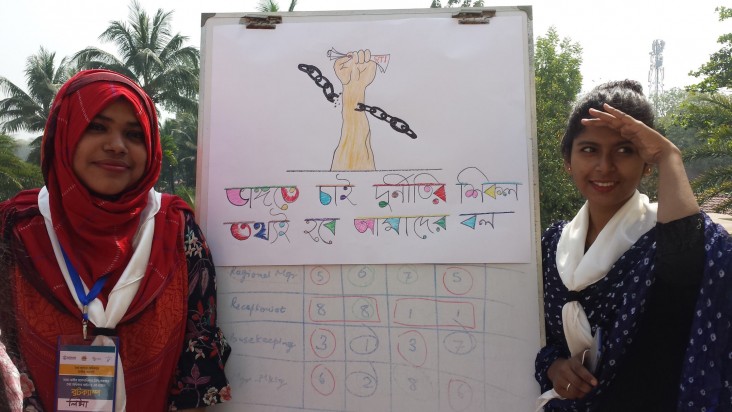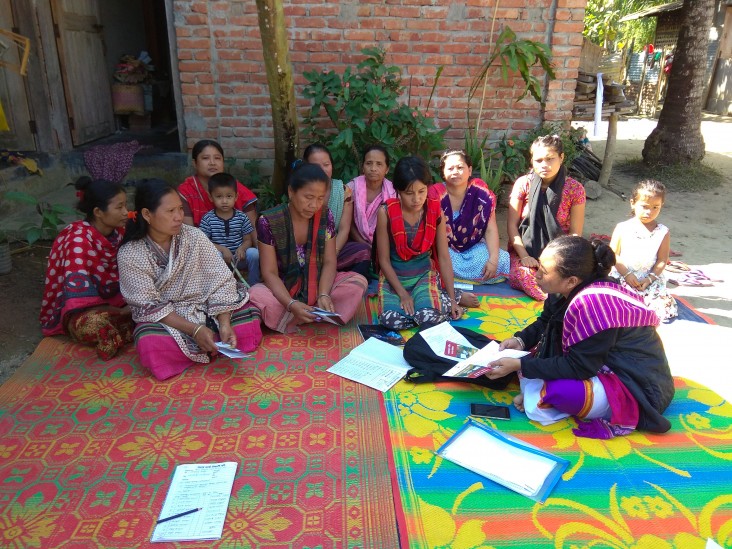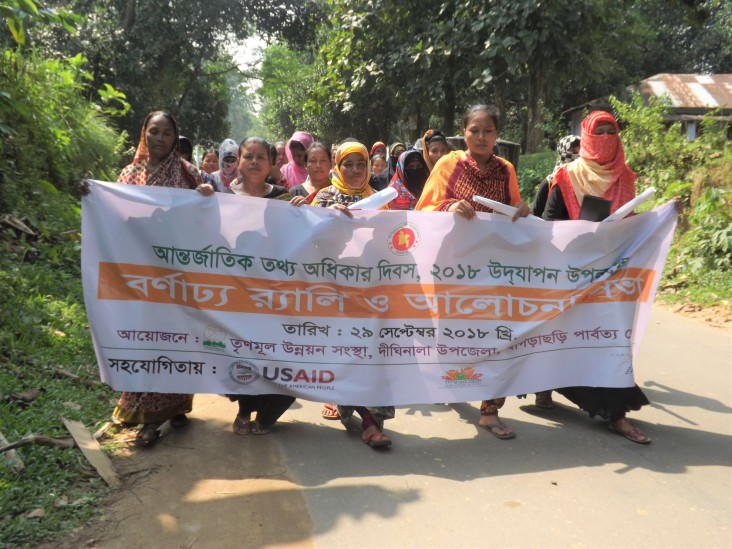Speeches Shim
The Right to Know in Bangladesh: ‘They Now Call Me “Madame”’
Laura Neuman, a director at The Carter Center, a U.S.-based nonprofit organization working in more than 80 countries, tells the story of a Bangladeshi woman who told her father that she was meeting with Dhaka officials in an effort to get street lights in her neighborhood.

“You’re just a young girl. They won’t pay attention to you,” the father scoffed at his 20-something daughter.
When she succeeded, and the neighborhood became safer due to the illumination, her father beamed with pride. Knowing the district’s bureaucracy, he had been certain that the quest was an impossible one.
After all, he thought, she was so young—and a woman.
This is what The Carter Center’s project on Advancing Women’s Right of Access to Information in Bangladesh is all about. Under the slogan “Inform Women, Transform Lives,” the program is now in its third year with support from USAID.
Has it been effective in the districts where it has been rolled out, including the capital city of Dhaka? Many believe yes. One woman told The Carter Center that when she speaks with local government officials, “They now call me ‘madame.’”
The phrase has become shorthand for The Carter Center’s work in Bangladesh and elsewhere around the globe. “We use ‘They call me “madame”’ at the Center as a way to show the impact of what we do,” said Neuman.
The USAID grant––which came about from an unsolicited proposal submitted by The Carter Center––also helps the local and national governments in Bangladesh to be more transparent and accountable, serving ultimately to build trust with their citizens and reduce corruption. [Read advice on great concept notes.]

The project was rolled out in three districts—Dhaka, Khagrachari, and Sylhet—with a combined population of about 10 million people in a country of 160 million. The program uses a blend of grassroots community meetings, training, and targeted mass information, including the production of a television spot, billboards, and posters.
“With our local partners, we reached out to well over 100 civil society organizations in Bangladesh so they would better understand how they could use access to information to support the communities where they work,” said Neuman. “We found them very eager and engaged.”
To solidify support and gain confidence in the communities, the program concentrated on enlisting local partners.
“By cultivating partners in the regions, it becomes easier for us to communicate and collect information because they live in the area,” said Rumana Amin, a USAID project management specialist. “There's also an acceptance level. People like to know that local individuals are empowered, and it’s not just someone from the outside coming in.”
In fact, said Chief of Party Sumana Mahmud, “when we put out calls for applications, we received many from organizations that weren’t headquartered in the communities where we planned to work. But we selected partners from those areas.”
“In Bangladesh there is a cultural reluctance for women to speak up and question authorities about such issues as ‘Why doesn’t my community have electricity’ or ‘Why aren’t the streets and canals being cleaned,’” explained Neuman. “Also, women have larger questions on social protection allowances, educational opportunities, and training in various fields.
“It’s basically a matter of holding the government accountable to the promises they had made,” she said.

The Carter Center has been advancing the right of access to information since 1999, working in different countries to establish laws, implement them, enforce them, and support users.
“Over the course of this work, we started to recognize that women in many areas largely were not at the table. Because we believed access to information was such a fundamental and transformative right, we developed a plan to focus on women and took it to USAID,” Neuman said.As with any worthwhile program, the issue of sustainability is a major question once the funded effort comes to a close.
“One of the things that has happened with this project is the participants have been recognized not just by their community and other civil society organizations, but also by the local government,” said Neuman. “They are being included in working groups, and they have been given a space that previously wasn’t there to raise their voices and leadership.
“So I definitely believe this is something that will continue because we have helped them build greater capacity. They are being engaged by local governments in new ways, and they see the value of information.”

Comment
Make a general inquiry or suggest an improvement.